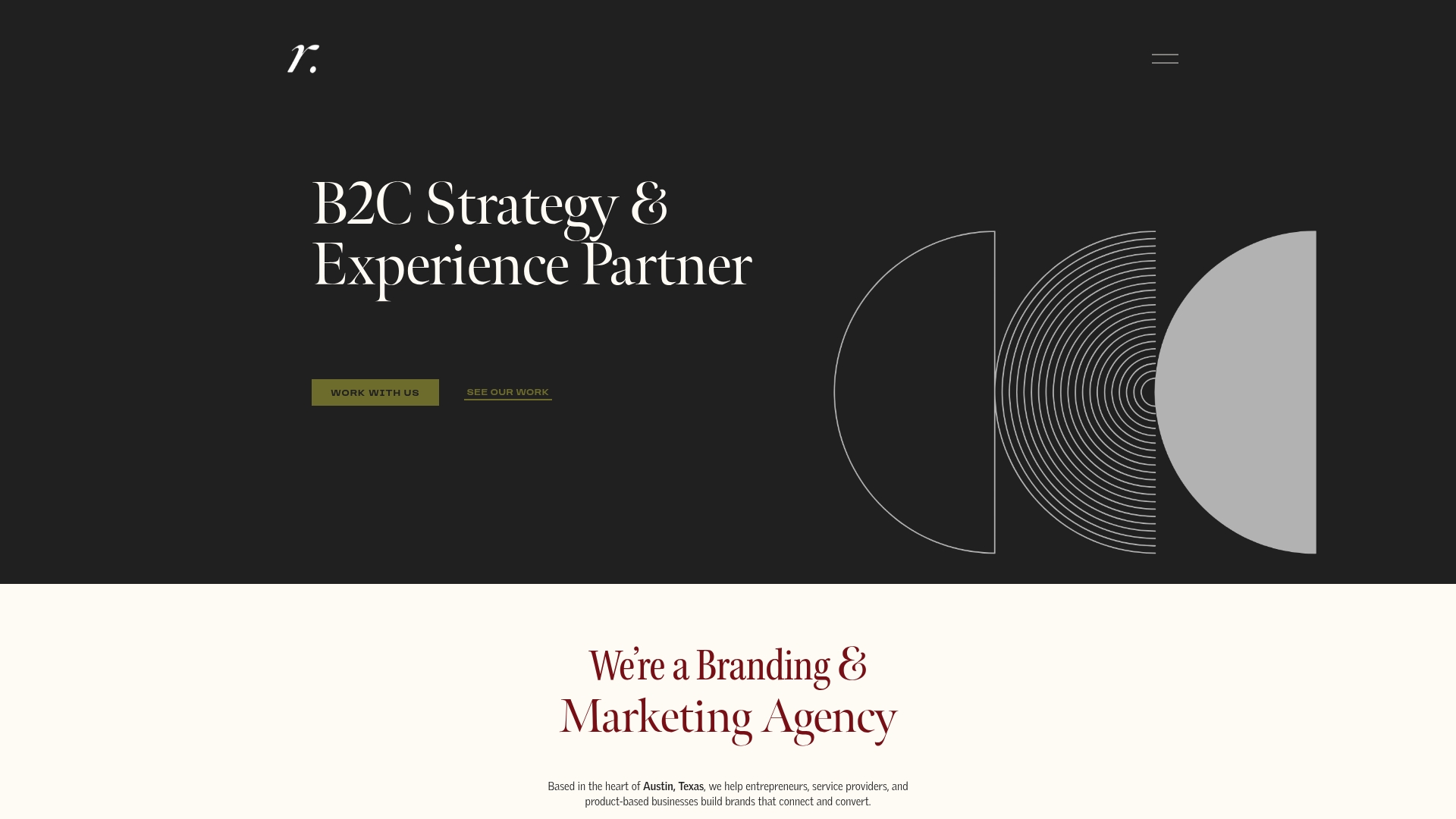What Is Rebranding and Why It Matters

Explore the b2b content strategy framework for clarity and growth. Learn key concepts, importance, and practical applications.

Businesses are pouring resources into B2B content, hoping to win the trust of corporate buyers. Most marketers still cling to generic sales pitches and scattered blog posts. But research shows that strategic content marketing can cut expenses by up to 62 percent and produce three times more leads than traditional outbound methods. The real difference comes from building a framework where every word helps solve real business problems—not just fill up a content calendar.
A B2B content strategy framework is a structured approach that guides businesses in creating, distributing, and managing content specifically designed to attract, engage, and convert other businesses as potential customers. Unlike traditional marketing strategies, this framework focuses on developing targeted, valuable content that addresses the complex decision making processes inherent in business to business transactions.
The framework serves as a comprehensive roadmap that connects strategic planning with tactical content execution. At its foundation, it includes several critical elements that transform random content creation into a purposeful marketing system.
According to Columbia Business School’s B2B Marketing Strategy research, successful B2B content strategies require a nuanced understanding of how businesses make purchasing decisions. This means moving beyond generic marketing tactics and developing content that demonstrates genuine expertise and provides actionable insights.
Businesses operate with significantly more complex purchasing dynamics compared to individual consumers. Decision makers often involve multiple stakeholders, require extensive research, and evaluate solutions through a lens of long term organizational value. A robust B2B content strategy framework helps companies navigate these complexities by.
The ultimate goal of a B2B content strategy framework is not just to generate leads, but to create meaningful connections that position a company as a trusted partner capable of solving complex business challenges. By systematically addressing buyer needs and demonstrating deep understanding, businesses can transform content from a marketing expense into a strategic growth asset.
The following table organizes the core components of an effective B2B content strategy, summarizing their focus and purpose for easy reference.
ComponentFocus AreaPurposeStrategic AlignmentBusiness ObjectivesEnsures content directly supports company goals and sales outcomesAudience UnderstandingTarget PersonasDeeply maps needs, challenges, and motivations of business decision makersContent MappingBuyer's JourneyAligns content to relevant stages for maximum engagementContent Development & GovernanceCreation & OversightStructures production, consistency, and quality control of all contentMeasurement & OptimizationAnalytics & ImprovementTracks performance and refines strategies for continuous growth
In an increasingly digital marketplace, a well-crafted B2B content strategy has transformed from an optional marketing tactic to a critical business survival mechanism. Modern businesses recognize that strategic content is not merely about generating visibility, but about establishing meaningful connections that drive sustainable growth and competitive advantage.
Businesses that invest in a targeted content strategy experience significant economic benefits. Content becomes more than a marketing expense when it directly contributes to business objectives. By creating purposeful, valuable content, companies can:
This table summarizes the key differences between traditional outbound marketing and strategic B2B content marketing based on the economic impact discussed in the article.
ApproachMarketing Expense ImpactLead Generation EfficiencyBuyer Engagement StyleTraditional Outbound MarketingHigher, due to broad tacticsLower, fewer leads generatedSales-focused, less targetedStrategic B2B Content MarketingUp to 62% lowerThree times more leadsValue-driven, highly targeted

In B2B markets, buyers are not making impulse purchases but making calculated decisions that impact their entire organization. Thoughtful content transforms your brand from a potential vendor into a trusted advisor. When potential clients see that you can articulate their challenges and offer nuanced solutions, they are more likely to engage and ultimately convert.
The most successful B2B content strategies go beyond surface-level promotional material. They create a narrative that positions your business as a problem solver, thought leader, and strategic partner. This approach recognizes that in the B2B world, relationships and demonstrated expertise matter far more than aggressive sales tactics.
A B2B content strategy framework operates as an integrated system that transforms random content production into a purposeful, strategic marketing approach. Unlike traditional marketing methods, this framework provides a comprehensive methodology for developing, distributing, and measuring content that directly supports business objectives and resonates with target audiences.
The framework functions through a systematic approach that connects multiple organizational elements. This alignment mechanism ensures that content is not created in isolation but serves as a strategic tool for business growth. Key operational principles include:
The framework breaks down content production into interconnected stages that ensure consistency, quality, and strategic relevance. This process involves:
Each stage is designed to build upon the previous one, creating a continuous improvement cycle that adapts to changing market dynamics and audience needs. By treating content as a strategic asset rather than a marketing expense, businesses can develop a more intelligent and responsive approach to audience engagement.
Ultimately, the B2B content strategy framework transforms content from a disconnected marketing activity into a sophisticated business growth mechanism. It recognizes that in complex B2B environments, meaningful communication requires more than simple promotional messaging—it demands a nuanced, strategic approach that demonstrates genuine understanding of business challenges and offers valuable insights.
An effective B2B content strategy is a complex ecosystem that requires deliberate design, precision, and a deep understanding of business communication dynamics. Unlike consumer marketing, B2B content demands a more nuanced approach that speaks directly to professional decision makers and their organizational challenges.
The cornerstone of any robust B2B content strategy lies in comprehensive audience understanding. This goes beyond basic demographic information and requires a multi-dimensional analysis of target business personas. Successful strategies develop detailed insights that reveal:
Effective B2B content strategies require a structured approach to content creation that ensures consistency, quality, and strategic alignment. This framework encompasses several critical components:
The goal is not just to produce content, but to create a strategic communication ecosystem that positions the organization as a trusted industry thought leader. Each content piece should serve a specific purpose within the broader business communication strategy, whether that means educating potential clients, demonstrating technical expertise, or addressing specific industry challenges.
By treating content as a strategic asset rather than a marketing afterthought, businesses can transform their communication approach. The most successful B2B content strategies recognize that meaningful engagement requires depth, authenticity, and a genuine commitment to providing value beyond simple promotional messaging.

Real-world B2B marketing case studies provide invaluable insights into how strategic content approaches translate into tangible business outcomes. These practical examples demonstrate the power of sophisticated content strategies in driving engagement, building trust, and generating meaningful business opportunities across diverse industries.
In the technology sector, content marketing has evolved from traditional product descriptions to sophisticated narrative approaches that showcase deep industry expertise. Companies like Cisco and IBM have pioneered content strategies that position them as thought leaders rather than mere product vendors.
Feeling overwhelmed by marketing that never seems to move the needle? The article above highlights a real struggle many entrepreneurs and small business owners face: creating content without a clear roadmap or measurable results. If your efforts feel random or disconnected from your real business goals, there’s a better way. The framework discussed is not just theory—it can be transformed into a practical, repeatable system for your brand’s growth.

Let Reasonate Studio help you bridge the gap from confusion to clarity. Our proprietary Aligned Impact Model™ was designed to make marketing simple, sustainable, and actionable. We help you align your content strategy with your audience’s needs and your unique business objectives so every piece of content drives results. Skip the guesswork and invest in a proven process that grows both your confidence and your revenue. Visit Reasonate Studio now and discover how you can transform your content into a true competitive advantage. Take your first step toward strategic, measurable, and emotionally intelligent marketing today.
A B2B content strategy framework is a structured approach that helps businesses create, distribute, and manage content specifically aimed at attracting, engaging, and converting other businesses into customers.
A B2B content strategy is important because it helps businesses navigate complex purchasing dynamics, establish thought leadership, build trust, and create predictable pathways for lead generation and conversion.
The core components include strategic alignment with business objectives, understanding audience personas, and mapping content to different stages of the business buyer’s journey.
A well-executed B2B content strategy can reduce customer acquisition costs, shorten sales cycles, increase customer retention rates, and ultimately contribute to long-term brand credibility.